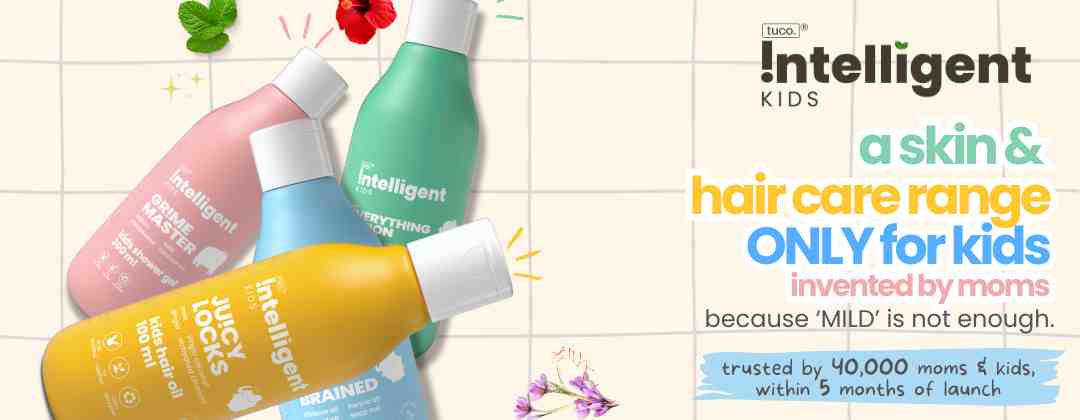The word ‘retinol’ is a new addition to almost every skin influencer’s dictionary today. What's the buzz about this retinol thing anyways? Honestly speaking, it is a make-or-break type of skin care product for many.
This product is created from Vitamin A compounds that are also responsible for the production of pigments in the retina of the eye - and hence the name.
Ah, OK. But why is retinol called the ‘holy grail’? Apparently, it helps in improving acne, sun damage, fine lines, wrinkles, and… well, the list goes on.
Wonder why retinol rules the skin care market? To know the answer to this, it is necessary to first understand what it actually means and how it is beneficial for the skin.
CONTENT INDEX
- What does retinol mean? And its benefits
- How do we use retinol for our skin?
- Hazards of using retinol
What does this mystery word retinol mean?
Simply put, retinol for the skin means the creation of chemical compounds that are essentially a derivative of Vitamin A. They are important for vision and normal human development. In addition to this, retinol and retinoids(including retinoic acid and retinyl palmitate) are responsible for giving us a fresh, glowing skin!
Retinol is usually yellow in color and is fat-soluble, unlike other vitamins that are water-soluble. This means that vitamins like retinol are stored in our body fat. There is also a misconception regarding the use of retinol and Vitamin A. Though used interchangeably, they are different.
Now that we know what retinol is, let's look at some of its benefits.
The Magic of Retinol on Your Skin
It is not called a magic skincare product for no reason! Retinol for the skin is a one-stop solution for varied skin problems . For starters, it helps promote anti-aging (say goodbye to wrinkles and fine lines).
Also, when added to skincare products, it brightens the skin tone, reduces acne, and boosts collagen production. If this powerful ingredient is included in your skin regimen, then trust me, you will experience wonders!
It is time to see how to use retinol. But first, who is allowed to use this skincare product?
Should you be using this magic potion?
Anyone in their mid-20s and early 30s can reap the benefits of Retinol.
It is the usual norm to start using retinol after you turn 30, but with changing lifestyles and growing technologies, many people in their mid- or late 20s have started including retinol in their skin care routine.The reason may be to curb early aging signs, crow feet,and tanning. All of this has to be done under the supervision of the doctor.
So, the question arises as to how we can use retinol.
Your Guide to Getting Started With Retinol
CAUTION — Retinol products are extremely concentrated, which means they have to be used only in small quantities. To involve retinol in your skincare, all you have to do is slowly introduce the product to your skin.
The key is to be patient. Giving time for your skin to adapt to retinol products is extremely important to avoid any reactions. Imagine this, you don't become close to somebody on the very first day of your meeting. Similarly, it takes time for retinol to come into action and treat your skin.
How to apply retinol?
The ideal quantity to be used is only a pea-sized amount on the finger. Start with a low percentage formula (between 0.01% to 0.03%), and slowly increase the percentage for your skin to get used to it. Try to use retinol at least twice a week.
Note : In case you are going to exfoliate, skip the retinol on the previous day, as you do not want your already sensitive skin to react to irritation caused by exfoliating.
For people with sensitive skin, there are many products available in the market to reduce acne breakouts.
Retinol can be included with other skin products in your skin regimen. Remember to start your routine with a cleanser in the morning and end it with using a retinol at night .
Start the routine by
Cleansing your skin: It is recommended to use a mild , fragrance-free cleanser (especially for sensitive skin), first thing in the morning, to remove any dirt particles, dust and to release clogged pores.
Following which,
Use a serum: the next step is to apply a gentle serum, preferably a water-based serum like hyaluronic acid. Water-based serums are a good combination to use with retinol. Once the serum dries up, your skin will be ready for retinol!
Apply your chosen retinol: the main step of your skin care routine comes with applying this bottle of magic! Apply a pea-sized amount of the selected retinol serum or moisturizer to your skin in a gentle manner.
Moisturizing is a must : No routine is complete without our skin’s best friend, aka, the moisturizer! A hydrating moisturizer is recommended since retinoids may dry the skin.
Beauty tip: don't forget to finish your routine with SPF sunscreen even when at home!
Like two sides of a coin, any product has its own limitations. Overuse of the product is not recommended. With respect to a retinol product, there are some side effects one should be mindful of before buying them.
The Uh-ohs of Retinol
There are some usual side effects of using retinol, which includes mild irritation, dryness of skin, and even sun sensitivity. If you experience these, don't worry. These are pretty normal, and as your skin gets used to retinol, they will vanish.
It is a known fact that retinol makes your skin more sun sensitive. This means that whenever we apply retinol, it is compulsory to pair it up with sunscreen during the day. Your skin becomes vulnerable if a proper after routine is not followed with using retinol. Although retinol provides a plethora of benefits for the skin, we should keep in mind the side effects before using it.
But beware. Some problems caused by retinol can be serious. These include:
- Intense flaking
- Redness
- Burning sensation
Those with sensitive or easily irritated skin should approach retinol with caution! If you use strong or highly concentrated retinol, chances are that you may experience irritation, itchiness and severe patches on the skin.
In such cases, it is better to switch to other anti-aging products that are good alternatives. Also, those with sensitive skin conditions like rosacea or eczema should totally avoid retinol usage!
How to Prevent Any Uh-ohs With Retinol
Always make it a habit to apply retinol at night. This is because retinol can make your skin sensitive to the harsh UV rays and reduce efficiency(we don't want that do we?). And ofcourse, apply sunscreen (with spf over 30) religiously during the day.
One must also be cautious of the weather conditions while using retinol, as it is not ideal in hot weather conditions.
Despite all the drawbacks, retinol is a go-to skincare product that saves the day for many of its loyal users. If one is careful about the retinol use, then it is safe to say that your skin will change for the better (no less than a miracle!).
Here, I would also like to add some product recommendations from TUCO Intelligent that are truly Intelligent in their make.
To treat:
- Alpha-arbutin brightens the skin tone and heals skin damage.
- Grapeseed oil provides skin elasticity and flexibility.
To prevent recurrence:
- Green tea reduces free radicals and detoxes skin.
- Saffron evens and brightens skin tone without causing breakouts.
Skin Brightening body lotion proven to fight fine lines and wrinkles with Kojic acid & saffron:
To treat:
- Kojic acid treats skin conditions, such as sun damage, scars, and age spots.
- Saffron Oil boosts collagen synthesis for brighter-looking skin.
To prevent recurrence:
- Wheat germ oil builds collagen and skin elasticity.
- Almond oil preserves skin’s natural moisture.
These products can be combined with retinol and used in your skin care regimen to provide maximum benefits.
As we come to the end of the article, I would like to conclude by saying that anything in limit is truly beneficial, and retinol is no exception!




